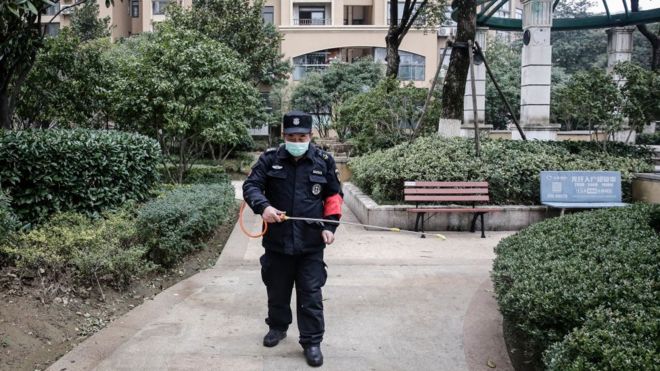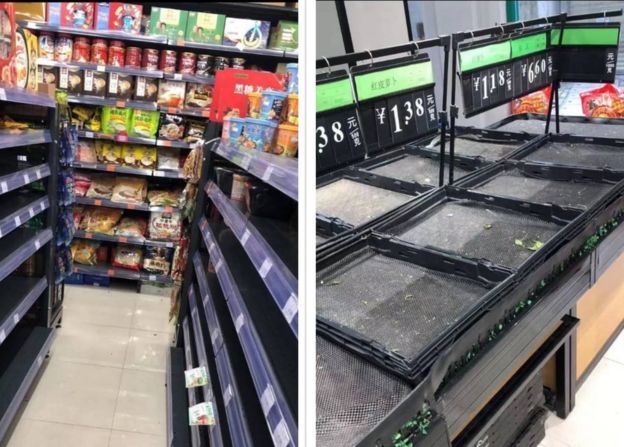 GETTY IMAGES
GETTY IMAGES
The Chinese city where a new virus has left 17 dead has gone into lockdown to try to stop the outbreak spreading.
Many of Wuhan's 11 million people had been preparing for Lunar New Year celebrations.
A second city, Huanggang, will be placed in quarantine at 00:00 local time (16:00 GMT).
A doctor at a Wuhan hospital tells BBC News of her alarm at the spread of the outbreak. We have chosen to protect the doctor's identity.
It's my first epidemic. The first time we heard about coronavirus was 31 December, when there were a few cases.
But in the last two weeks, there has been an alarming rate of spread. I am scared because this is a new virus and the figures are alarming.
The hospitals have been flooding with patients, there are thousands, I haven't seen so many before.
They have to wait for hours before they see a doctor - you can imagine their panic.
It's a new virus, so there isn't much information.
The incubation period is usually seven days, with two to three days the minimum period and 10 to 12 days the maximum.
It is spread through human-to-human transmission and there are also medical-staff infections.
The virus may mutate, so there is further risk of spread.
Specialists here have produced a quick guide to diagnosis and treatment after studying admitted patients.
- How do you quarantine a city - and does it work?
- How worried should we be about coronavirus?
- China coronavirus: Your questions answered
Fever is the main manifestation of the virus. Dry cough, shortness of breath, and diarrhoea are the other main symptoms. Some patients get a runny nose.
Severely affected patients get severe respiratory problems, septic shock and, as we know, there have been at least 17 deaths. But most patients have a good prognosis.
It's more dangerous for the elderly, pregnant or people with weakened immune systems.
The government is responding well now to try to stop the virus spreading.
Outside, I can barely see anyone on the streets. We have been told to avoid gathering.

Some Lunar New Year celebrations are cancelled.
We were told two days ago not to go to work at the hospital, because of the risk of the virus spreading.
Our accommodation is on the university campus, so there is higher risk of contamination.
If we leave our house, we have to wear masks. It's illegal not to wear them.
We don't want to take our two-year-old son outside. He's sleeping now and we are trying to protect him as much as possible - using hand-washing, airing the apartment, avoiding contact with people.
I'm scared for him and the rise in deaths is something to worry about.
I went to the supermarket to buy food but there was nothing left - no vegetables - and everywhere is closed.
Today from 10:00, all boundaries in the city were closed - no in or out. People are not allowed to leave. We don't know how long this will last.
Normally, Wuhan is a great place to live. We are proud of our work as doctors.
But I fear this is going to get worse and worse. There is no anti-virus medication, so we can only treat symptomatically - decreasing fever and with good hydration.
Right now, it's all about precautions.
People are getting phone messages from the authorities, with advice about precautions and what to do if you have symptoms.
Screening is difficult because of the one-week incubation period - people may be travelling without realising they have the virus.
That means the actual figure of people infected is probably higher.
We plan on staying at home, not taking our son outside. We will focus on hygiene, airing the apartment and some light exercise to improve our immune systems.
Some students had bought tickets to go home for Lunar New Year but they can't go now. Everyone is stuck here and can't leave.
0 Comments